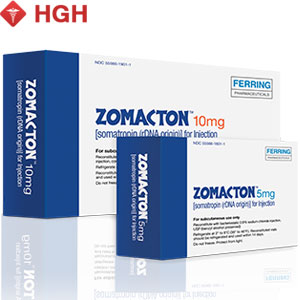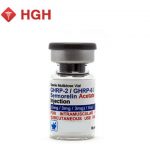
Testosterone and insulin sensitivity have gathered a lot of attention among those who specializes in men’s health. With the growing number of men diagnosed with diabetes, many are looking to find the factor causing the trend. Along with linking certain hormones, researchers are also looking for the best treatment option for those suffering from this disease. Testosterone therapy and insulin sensitivity management is among those closely observed for its potential to address serious conditions. Recent studies all concluded that among men, the level of testosterone affects insulin sensitivity. In this article, we will discuss the link between testosterone level and insulin, the impact of testosterone on insulin sensitivity, and all you need to know about insulin sensitivity.
Relationship between Testosterone and Insulin
Testosterone is a hormone majorly dominant among males. It is responsible for sexual and reproductive development. It also works to drive sexual desire, production of red blood cells, fat distribution, and maintenance of muscle strength and mass. Classified under the group of hormones called androgen, testosterone is produced in the testes, with some of it coming from the adrenal glands.
On the other hand, insulin is a hormone coming from the pancreas. Its main function is to ensure proper use of sugar coming from carbohydrates to maintain the body’s energy or to store sugar for future use. It is also responsible for regulating blood sugar level. Insulin levels is very important for diabetics. By knowing the level of insulin in their bodies, they are able to determine how much insulin they need to inject for their bodies to properly process glucose and turn it into energy needed by the body.
In regards to the link between testosterone and insulin resistance, studies found that testosterone help insulin resistance. University of Buffalo’s Paresh Dandona and colleagues revealed that men diagnosed with type 2 diabetes with complication of hypogonadotropic hypogonadism who took testosterone injections exhibited a 25% hike in insulin sensitivity. Given the relationship between testosterone and insulin, there is potential for testosterone to help insulin resistance.
Low Testosterone May Affect Insulin Sensitivity
As previously discovered, testosterone deficiency and insulin are directly associated. However, it is still not clear what drives the significant impact of testosterone on insulin sensitivity. In their study, Pitteloud and colleagues conducted a study with an aim to identify the relationship between functions of the hypothalamic, pituitary, and gonadal glands and their contribution to the development of insulin sensitivity. The researchers focused on measuring insulin sensitivity among 21 men with ages ranging from 25 to 65 years old. Particularly, they induced hypogonadism among the participants through the use of GnRH antagonist. They were then tested for pituitary and testicular responsiveness by using a combination of GnRH and human chorionic gonadotropin (HCG). Results revealed that a significant relationship between baseline testosterone levels and insulin sensitivity, as well as correlation between Leydig cell function and insulin sensitivity. Also, they uncovered, whil still lacking enough evidence, that signals from adipose tissues in men play an important role in gonadal function. Adipose tissues is known to modulate insulin action. They concluded that insulin resistance is associated with lower Leydig cell T secretion in men.
More Scientific Evidence
Given the nature and relationship between the two, several studies have looked further on the link between testosterone and insulin resistance. A study published on journal Diabetes Care disclosed that mitochondrial function along with the level of testosterone affect insulin sensitivity. The study subjected 60 men to a detailed hormonal and metabolic evaluation. The main goal of the researchers was to evaluate the participants’ insulin sensitivity and mitochondrial function. Researchers revealed that among the participants, 45% had normal glucose tolerance while 20% showed impaired glucose tolerance and the remaining have type 2 diabetes. In regards to the relationship between the level of testosterone and insulin sensitivity, they discovered that those who exhibited hypogonadal testosterone level had higher prevalence of metabolic syndrome compared to their eugonadal counterparts.
Everything You Need to Know About Insulin Sensitivity
Insulin sensitivity is the state of how the human body’s reacts or is sensitivity to insulin. The importance of knowing one’s insulin sensitivity makes it easier to determine whether to administer a lower dosage of insulin to lower blood glucose levels. Diabetics with low insulin sensitivity are experiencing what is called insulin resistance and they need more insulin in order to maintain normal blood glucose levels. People with insulin resistance faces difficulty in metabolizing glucose, which could lead to more serious conditions like high blood pressure and cholesterol levels.
However, high insulin sensitivity also has some negative side-effects, including:
- Damage to blood vessels;
- High blood pressure;
- Heart disease and heart failure;
- Obesity;
- Osteoporosis;
All scientific data points that the level of testosterone affect insulin sensitivity. Testosterone helps insulin resistance, particularly those people diagnosed with type 2 diabetes. Testosterone deficiency and insulin sensitivity were uncovered to be affected by an imbalance of one. Thus, it is important to keep a healthy and normal level of testosterone to not develop insulin resistance. By uncovering the impact of testosterone on insulin sensitivity, there are several potentials for the healthcare industry on how to approach treating diseases like diabetes.
Hormonal imbalance may happen at any time of your life. It affects both men and women, all kinds of races, and every socioeconomic standing. Experts in the medical field proved that testosterone help insulin resistance. Testosterone therapy and insulin sensitivity maintenance go hand-in-hand to combat diseases like diabetes and heart diseases. At Wellness MGT, we offer services that only cares for you and your optimal health. We provide hormone replacement therapy ranging from growth hormone, estrogen, progesterone, and testosterone.




